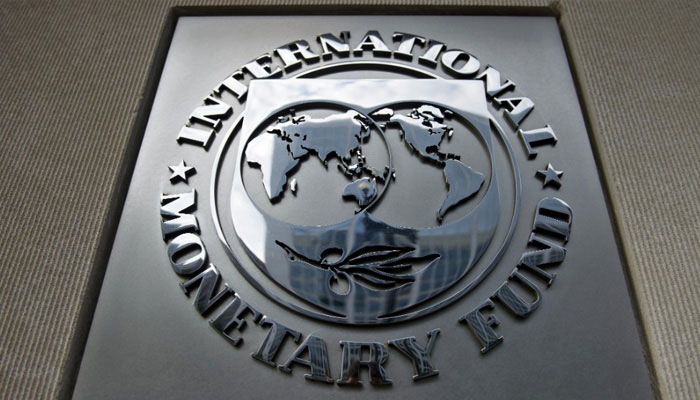IMF says policy uncertainty poses risks to growth
KARACHI: The International Monetary Fund (IMF) sees policy uncertainty and economic imbalances as risks to growth that it forecasts would slide to four percent in the current fiscal year from a decade-high of 5.8 percent a year earlier.
The Washington-based lender said pickup in public consumption, credit expansion and improved security offset the negative effect of policy uncertainty in Pakistan whose strong growth last year drove the regional aggregate growth higher.
“Lingering policy uncertainty and persistent macroeconomic imbalances in some countries (Lebanon, Pakistan, Sudan, Tunisia), along with tightening global financing conditions, underscore risks to private investment, and thus prospects for achieving a more balanced and broad-based mix of growth,” the IMF said in its latest report, titled ‘Regional Economic Outlook: Middle East and Central Asia November 2018’.
IMF said the regional economies are expected to benefit from positive spillovers of exports, foreign direct investment and remittances to ease pressure on their external account sector.
“The exception is Pakistan where imprudent economic policies have contributed to a surge in imports and a wider current account deficit,” it added.
The IMF, however, put current account deficit marginally lower at 5.3 percent in the fiscal year of 2019 as against 5.9 percent a year ago.
An IMF’s delegation earlier this week concluded its two-week visit to initiate discussions on a financial arrangement with the Fund requested by the Pakistani authorities to support their economic reform program as foreign reserves fell more than 40 percent since January, barely sufficient to meet two-month of import bill and foreign debt payments.
The central bank let the rupee depreciate around 20 percent against the US dollar since December last year to support dwindling foreign exchange reserves.
“Further appreciation of the US dollar and higher interest rates in the United States could reinforce capital outflow pressures, which, coupled with higher oil import bills, would put additional strains on reserve buffers in some countries, particularly those with significant external financing needs (Pakistan, Sudan),” IMF warned.
The Fund further also called for fiscal discipline through control over government borrowing from the central bank to reduce fiscal deficit that widened to 6.5 percent in the last fiscal year. In some countries, including Pakistan, further fiscal consolidation will be required “to rein in central bank financing and limit any inflationary pass-through,” it said.
The IMF forecast fiscal deficit at 6.9 percent and consumer inflation at 7.5 percent in FY2019 compared to 3.9 percent in the previous fiscal year. Debt in Pakistan will remain above the 60 percent vulnerability threshold for emerging economies.
The IMF said private investment-to-GDP ratio has exhibited a decline in the country since 2004.
“This indicates that political instability has not been conducive to attracting private investment,” it said. Access to credit should be eased to help the job-creating private sector compete more effectively, better enabling it to take advantage of external demand.
The IMF said the country suffers particularly low level of business creation with one business per 1,000 residents.
-
 Andrew Mountbatten-Windsor Throws King Charles A Diplomatic Crisis
Andrew Mountbatten-Windsor Throws King Charles A Diplomatic Crisis -
 Barack Obama Hails Seahawks Super Bowl Win, Calls Defense ‘special’
Barack Obama Hails Seahawks Super Bowl Win, Calls Defense ‘special’ -
 Pregnant Women With Depression Likely To Have Kids With Autism
Pregnant Women With Depression Likely To Have Kids With Autism -
 $44B Sent By Mistake: South Korea Demands Tougher Crypto Regulations
$44B Sent By Mistake: South Korea Demands Tougher Crypto Regulations -
 Lady Gaga Makes Surprising Cameo During Bad Bunny's Super Bowl Performance
Lady Gaga Makes Surprising Cameo During Bad Bunny's Super Bowl Performance -
 Paul Brothers Clash Over Bad Bunny's Super Bowl Performance
Paul Brothers Clash Over Bad Bunny's Super Bowl Performance -
 South Korea: Two Killed As Military Helicopter Crashes During Training
South Korea: Two Killed As Military Helicopter Crashes During Training -
 Elon Musk Unveils SpaceX’s Moon-first Strategy With ‘self Growing Lunar City’
Elon Musk Unveils SpaceX’s Moon-first Strategy With ‘self Growing Lunar City’ -
 Donald Trump Slams Bad Bunny's Super Bowl Performance: 'Absolutely Terrible'
Donald Trump Slams Bad Bunny's Super Bowl Performance: 'Absolutely Terrible' -
 Jake Paul Criticizes Bad Bunny's Super Bowl LX Halftime Show: 'Fake American'
Jake Paul Criticizes Bad Bunny's Super Bowl LX Halftime Show: 'Fake American' -
 Prince William Wants Uncle Andrew In Front Of Police: What To Expect Of Future King
Prince William Wants Uncle Andrew In Front Of Police: What To Expect Of Future King -
 Antioxidants Found To Be Protective Agents Against Cognitive Decline
Antioxidants Found To Be Protective Agents Against Cognitive Decline -
 Hong Kong Court Sentences Media Tycoon Jimmy Lai To 20-years: Full List Of Charges Explained
Hong Kong Court Sentences Media Tycoon Jimmy Lai To 20-years: Full List Of Charges Explained -
 Coffee Reduces Cancer Risk, Research Suggests
Coffee Reduces Cancer Risk, Research Suggests -
 Katie Price Defends Marriage To Lee Andrews After Receiving Multiple Warnings
Katie Price Defends Marriage To Lee Andrews After Receiving Multiple Warnings -
 Seahawks Super Bowl Victory Parade 2026: Schedule, Route & Seattle Celebration Plans
Seahawks Super Bowl Victory Parade 2026: Schedule, Route & Seattle Celebration Plans




